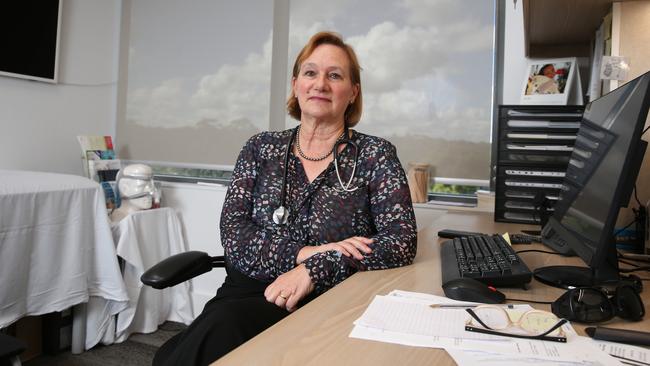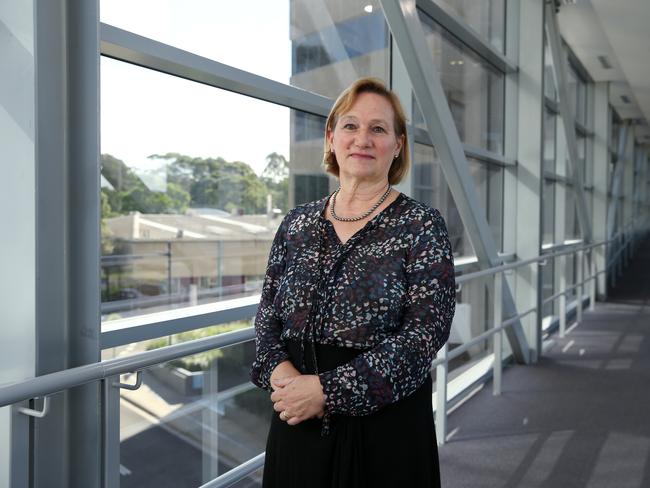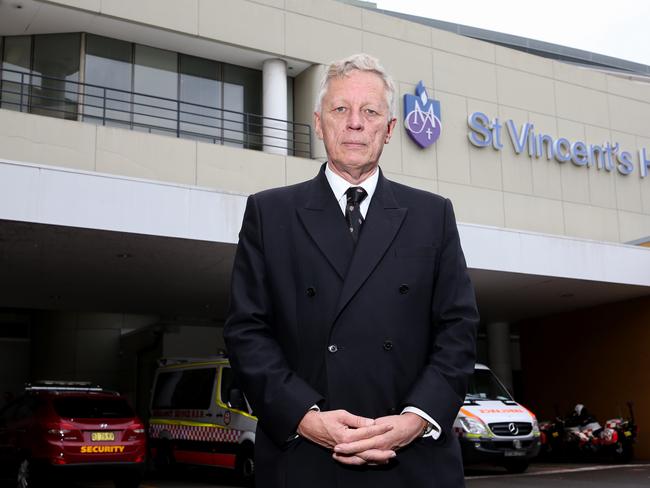‘Really distressing as a doctor to see’: what’s gone wrong with public hospitals
Deborah Yates was the kind of doctor who lived to serve in public hospitals. But not any more. She is not alone in turning her back on what she says is a broken system.

Against all of her instincts, Deborah Yates last year walked away from the public hospital she adored. The senior physician felt she could no longer work in a crumbling system. It wasn’t about stress: that’s part and parcel of the job of a doctor. It was a matter of life and death in an overloaded system presided over by managers whose priorities seemed devastatingly misguided.
“My intention when I first started practising medicine was to stay in the public hospital system forever,” says Dr Yates, a Cambridge University-trained respiratory physician who began her career in England’s NHS and also holds two higher degrees in occupational medicine.
“I was very dedicated to working for the public good. I think public physicians have always had that wish to care for underprivileged patients – that’s the whole point of doing medicine, really.
“But there’s no doubt that that altruism is being eroded in Australian hospitals, because there’s only a certain amount that one can do before basically becoming very burnt out.”
Dr Yates worked for 23 years, until January last year, at St Vincent’s public hospital in inner Sydney. Her husband is also a publicly practising respiratory physician. The pair have watched with horror, but not surprise, the steady deterioration of England’s NHS, where they trained. They believe the trends that have crippled public hospitals in the UK are now being reflected in Australia; and that they are accelerating at a fast pace.
Current or former staff in public hospitals or patients can contact Natasha Robinson by email at robinsonn@theaustralian.com.au or by Proton Mail at health_editor_australian.proton.me
“My husband and I could see the writing on the wall, with increasing difficulties in the NHS not only with getting patients into hospital, but with actually servicing them properly,” Dr Yates told The Australian from her private clinic at Macquarie University Hospital in Sydney’s northwest.
“Probably for the last 10 years or so, the situation in public hospitals in Australia has gradually got worse and worse, and they’re now increasingly like the NHS, which is really sad, because we can’t save people’s lives appropriately, and that’s the thing which is really distressing as a doctor to see.”
The tipping point for Dr Yates came when she found it more difficult not only to get public patients admitted to scarce beds at St Vincent’s, but also to see them in a timely manner in the respiratory outpatient clinic. One patient with a serious chronic lung infection had their appointment rescheduled seven times, and when Dr Yates encouraged the patient to complain to the hospital’s CEO, she was then subject to a disciplinary procedure, later dropped. It was just one example where Dr Yates felt hamstrung in providing proper care.

“I got to the point where I couldn’t sleep at night,” Dr Yates said. “I just carried on working because there was nothing else I could do. It’s really painful to see people die of things that are preventable and that could be easily remedied.”
A spokesperson for St Vincent’s said that many of the senior executives, including the CEO, had changed since the time of Dr Yates’ dispute with management.
“Professor Yates is a skilled and highly regarded clinician,” the spokesperson said. “St Vincent’s and our patients benefited from her clinical acumen and insight over two decades.
“While public health can often be challenging, across many important indicators – elective surgery waiting time, emergency transfer of care, patient experience indicators, cost of activity – St Vincent’s Hospital Sydney is one of the best-performing hospitals in NSW.
“We attribute that to our incredible and hardworking team … (we) value them enormously.”
Dr Yates said Australia’s health systems were on the brink.
“What’s at stake here is patients’ lives, but also doctors’ lives. Even in Australia now, it’s really at that level that people are losing their lives because of these issues we’re seeing with workforce. This is increasingly common, and it’s not just us, it’s also the nursing staff and others on the front line. “We went into medicine to try and save lives, and if you are actually prevented from doing that, you feel useless. You feel as though your whole life has been worthless.”
These sentiments were laid bare at scale this week in a National Doctors Survey by the Australian Salaried Medical Officers Federation, independently analysed by Australian National University professor of medicine Steve Robson.
The survey found only 3 per cent of specialists and 1 per cent of trainee doctors believed the administrators and managers in hospitals behaved in a highly respectful manner towards them. Almost a quarter said administrators were “highly disrespectful” towards clinicians. Doctors believed management did not understand the frontline work of doctors, rarely listened, and mostly only engaged in token gestures towards staff wellbeing and safe staffing. They said administrators “weaponised the complaints processes” routinely.
Only 6 per cent of specialists said administrators managed hospital budgets in line with clinical need, and about a third would not feel comfortable to report patient safety or clinical concerns. Half of all specialists said they’d been subject to retribution or reprisals after reporting concerns. Only about 40 per cent on average of all doctors said they intended to stay working in public hospitals within the next five years.
ASMOF federal president Tony Sara said the survey’s findings highlighted critical issues that threatened patient safety, workforce sustainability, and the integrity of healthcare delivery, echoing a previous survey that reflected similar results in NSW.
“Public sector doctors are clearly burned out and victimised but it is patients who cop the brunt of these concerning trends,” Dr Sara said.

Dr Yates is a state and federal councillor for ASMOF, is a conjoint professor, and is also on the board of the Royal College of Physicians, but speaks now in a personal capacity as a concerned doctor.
She says that despite large budgets given to public hospitals – which are allocated a third of the entire budget of NSW – there is widespread under-resourcing as a result of idiosyncratic decisions by administrators and frequent misdirection of funds. Set against this, there are societal trends that are placing enormous pressures on public healthcare systems.
“In terms of what is at play in the public hospital system in NSW, it is really disastrous,” Dr Yates says. “It’s happening all over Australia, it’s happening internationally.
“As demand and costs have gone up, the administrative burden in hospitals has also gone up a huge amount, and there’s a fair amount of what I would regard as unnecessary repetition, and a lot of management strategies are really out of step with the reality of the practice of medicine.
“What is emerging are serious flaws in the system. These are things that need to be addressed and can be addressed. Governments and administrators need to take the advice of the people working within the system.
“What we need is good patient care. That’s what we’re after, and we cannot do that if we haven’t got a bed to put our patients in.”
Natasha Robinson has declared a personal relationship with the author of the National Doctors Survey analysis, Professor Steve Robson.





To join the conversation, please log in. Don't have an account? Register
Join the conversation, you are commenting as Logout